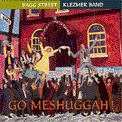 | City Unique: Montreal Days and Nights in the 1940s and '50s, McClelland and Stewart, 1996, $32.50, by William Weintraub, BA'47
Several years ago, when the Quebec government was considering the establishment of casinos in Montreal, it occurred to me that as a city councillor that I should seek the counsel of Harry Shipp. Who better to advise than the legendary Shipp, once North America's greatest gambler, proprietor of the two most successful but illegal casinos in Montreal in the '40s and '50s, owner of the Chez Paree where he employed the likes of Frank Sinatra, Martin & Lewis.
"Where's Harry Shipp?" I asked cops and lawyers, old time journalists and relics of the old St. Urbain St. Jewish community. Dunno, he's dead, think he moved to Florida or Nevada were the responses. Nobody knew what had happened to one of the most famous city names of the Camillien Houde era.
So, one afternoon, sitting in a quiet bar, I called 411 and found Shipp just like that. He came over in a flash. "Nobody calls me any more," he said simply.
Growing up in Montreal during that period, I always heard Shipp's name mentioned in awe, a bit, I suppose, like Capone's name in another era and town, but without the menace, for Montreal's wide, wide open days were not particularly violent, just benignly corrupt and full of winks.
Is it true what I heard in high school, I asked Shipp, that you bet $1 million a week?
Well, he said, on a weekend, I'd bet eight or nine baseball games. Never less than $100,000 a game.
And the horses? For he also ran Montreal's biggest bookmaking operations. Sometimes 25 horses a day at different tracks across the continent. Usually $10,000 a horse.
Bill Weintraub's book recounts that halcyon era, a Montreal seemingly lost in a past rewritten by Quebec nationalists to exclude its vibrant, cosmopolitan, bilingual character. If English Montreal doesn't know our stories, our mythologies, we don't know who we are or where we came from. Weintraub's book provides more than colour and wonderful anecdote, history and background; it also gives us a sense of ourselves. It's a fun read, but more important, helps reinforce a sense of identity that sometimes appears to be badly eroded.
by Nick Auf der Maur
Columnist, The Gazette, Montreal
|
 | Go Meshuggah!, Bagg Street Productions, 1996, $18.95 CD, $11.95 cassette. The Bagg Street Klezmer Band.
Klezmer, from the Hebrew word for musical instrument, is a cosmopolitan style of traditional eastern European wedding and celebration music. Full of colour and contrast, it can be melancholy or ecstatic, languorous or frenzied. Played originally by wandering Jewish musicians, it was brought to America by immigrants early in the century.
A klezmer revival has been going on for some years, as evidenced by a recent PBS special, a week of klezmer music at the 1994 Montreal Jazz Festival, and stacks of new recordings. The leading Montreal exponent is the Bagg Street Klezmer Band, who take their name from the Bagg Street synagogue. The title of this debut CD means Go Crazy! which is the effect klezmer musicians are supposed to have on party guests.
Alongside the sprightly minor key dances are folk songs and processionals, all learned by band members from older musicians or from 78 RPM recordings. Because klezmer has absorbed influences from gypsies and gentiles who have lived alongside the Jewish people, there are traces of Russian, Romanian, Bulgarian, Ukrainian, Polish, Greek, Turkish and Arabic music. Klezmer's multi-ethnic origins make it appealing to a wide range of fans, and as instrumental music it transcends linguistic barriers. Add in its sorrow and joy, exotic charm and tremendous energy, and it is easy to see why it is gaining popularity, striking a resonant chord with francophones and anglophones alike.
Three of the seven Bagg Street members are McGill alumni: leader and clarinetist Rick Goldman, BCL'84, BA'85, LLB'86; pianist Stephen Errington, BSc'86, BEng'89; and drummer and percussionist Harle Thomas, BA'94, MSW'95.
A lot of heart, soul and care went into this excellent set of music, appropriate for any gathering where emotions are felt--and you want to dance.
Craig Morrison
Bandleader, Craig Morrison and the Momentz
Instructor, McGill Centre for Continuing Education
|
 | Chasing the Dragon: Into the Heart of the Golden Triangle, Henry Holt, 1996, $38.50, by Christopher R. Cox, MA'82.
In 1994, Christopher Cox, a reporter with the Boston Herald, journeyed to the secluded Shan State of Myanmar to interview Khun Sa, a warlord rumoured to control one-third of the world's supply of heroin. The trip takes him through a world defined by four rules: nothing is free, nothing is what it seems, nothing ever goes as planned, and, for the increasingly suspicious writer, nothing is a coincidence. Cox's tale is gripping, combining high adventure and intrigue with astute social criticism.
Patrick MDonagh
Urban Adventurer
|